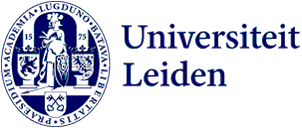
App on Gender Equality Launched at FGW: 'We have to do it together'
Male scientists owe their position to their brilliance, women to their hard work. Or do they? The Equalista app helps staff and students at the Faculty of Humanities to become aware of gender equality.
The Equalista app operates on the Duolingo principle. By answering questions in blocks of ten to fifteen minutes, you improve your understanding of gender equality. Unlike Duolingo, however, there is no right or wrong. 'The app uses a very friendly approach to get you thinking,' says associate professor and initiator Jenneke van der Wal. 'What ideas about gender may have been instilled in your mind since primary school, influencing your choice of study and career?'
Specific focus on academia
On the initiative of Van der Wal, two modules focusing specifically on the academic world have been added to the app: 'Working in higher education' and 'Students in higher education.' 'In academia, a diverse composition of staff is crucial because it ensures that we see more perspectives and work with more respect for each other,' she explains. 'At the same time, the scientific world is originally a male-dominated environment, with a strong hierarchy and emphasis on tradition. To change that, we need to be aware of our mindset.'
Memory Aid
The app can also serve as a memory aid. 'How great it would be if El Cid or OWL mentors were to play the app as part of their preparation,' says Van der Wal. 'Or if selection committees use the app to remind themselves of their commitment to equality before the interviews. Ultimately, we collectively shape the system we work in, so we can also work together to gradually improve it.'
The Equalista app can be downloaded here. The first two hundred accounts are free for everyone at Leiden University.
The Equalista app is funded by Van der Wal’s Aspasia grant. The NWO made these grants available up until last summer for female scientists who were awarded a Vidi grant. Part of this money has been used to appoint researchers as associate professors, and they can use another part freely to improve the position of women in science.
